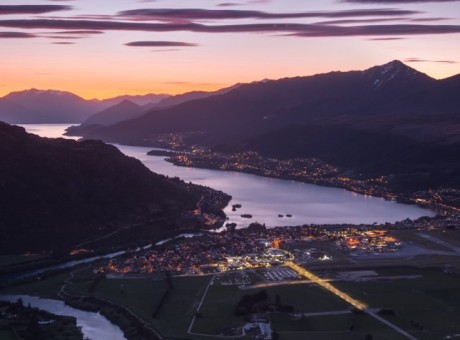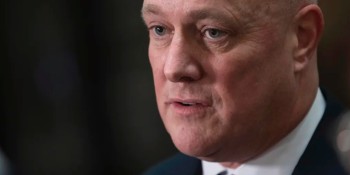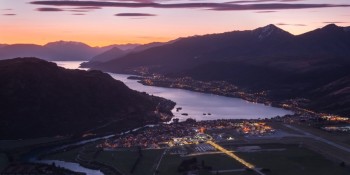Adults find student marches 'confronting': protest founder
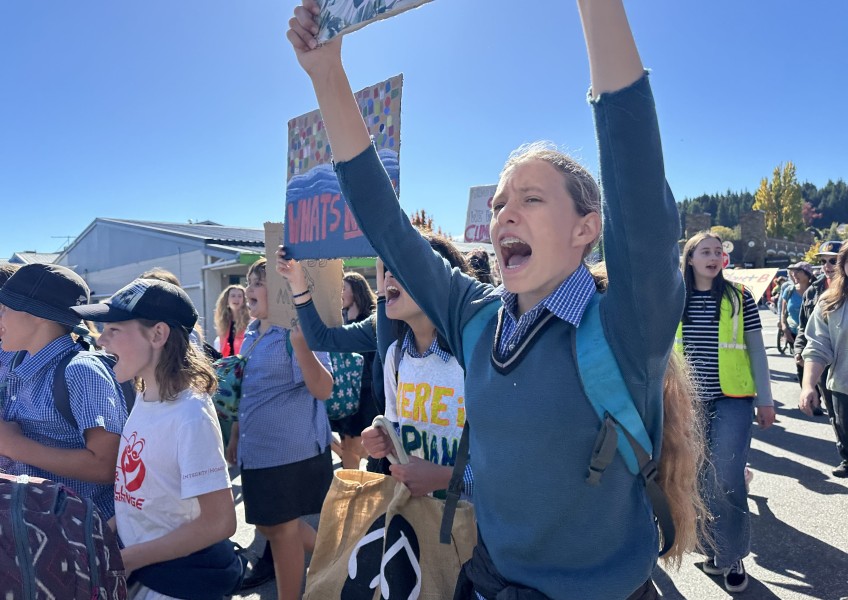
Editorial/Analysis
As climate change passionate students took to the streets in a public statement to parliament last Friday, others, meanwhile, took to Facebook to ridicule them.
"The biggest contribution to global warming is having a child...so, you see kids, it's all your fault, now go to your room," Lee Hoggart commented below a Crux Facebook post sharing a story on Wānaka's climate march, while variations of this insult were contributed by many others.
It always comes as a shock after interviewing these intelligent and industrious teenagers, and witnessing the protests, to then see adults and climate-change-deniers coming out of the woodwork to discount them.
Sophie Handford, who founded the School Strike 4 Climate in New Zealand back in 2019, tells Crux she thinks many adults find the student-led strikes confronting.
"Seeing a whole bunch of young people, who are organised, who know how to mobilise, who have relationships with different organisers around the country - it's a massive network - that in itself is a challenge to 'business as usual', and I think that people can find it quite confronting."
Sixty marched in the Wānaka strike on Friday, April 3, in solidarity with thousands who participated in marches in 16 other locations around New Zealand.
"The people themselves who are commenting, who, I'd say, probably aren't taking action in their own lives, but, instead, they are punching down and making other people feel like the blame is on them in terms of the crisis and our bigger picture," Ms Handford says.
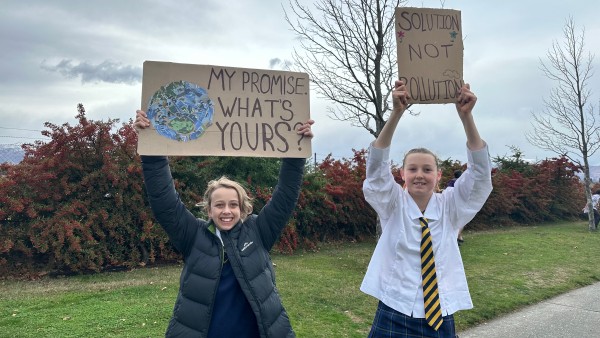
Students Ashley and Audrey at the climate strike in Queenstown last year.
Ms Handford says she thinks a motivation for students marching is that it's one of the only avenues they have to make their opinions known.
"There is a massive proportion of our population that isn't heard...this is one of the only outlets to participate in political discourse, so at the very least, we should be respected, no matter whether people agree or disagree with what we stand for."
Last Friday's march asked the coalition government to uphold the Treaty of Waitangi in the face of a campaigned-upon review, to stop the fast-tracking consenting legislation from going through, and to keep the oil and gas ban.
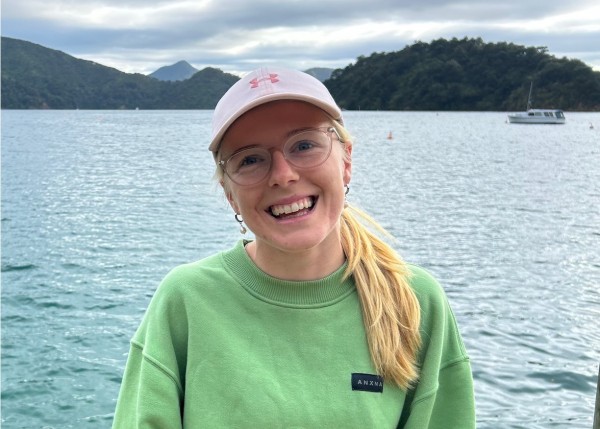
The marchers are a challenge to 'business as usual', founder Sophie Handford says.
Ms Handford explains that adults, and those in positions of power, have got a lot more "levers they can pull both within democracy and their own economic decision-making", but students are excluded from voting in local and general elections.
This is despite the Independent Electoral Review published last year recommending the voting age be lowered to 16, and the Supreme Court ruling in 2022 that preventing 16 and 17-year-olds from voting is unjustified age discrimination and in breach of the Bill of Rights Act.
"We have seen research that indicates adolescents are capable of making informed and rational choices about the future...by 16, adolescents’ cognitive capacity is essentially the same as adults," the electoral review's final report says, referencing a study on the adolescent brain from the New York Academy of Sciences.
Wānaka students told Crux on Friday that they wanted to vote.
Ms Handford herself was in Wānaka last weekend, speaking alongside former Greens co-leader James Shaw and climate scientist New Zealander of the Year Jim Salinger at the Aspiring Conversations 'What’s The Tipping Point' panel session.
She is now a second-term councillor for Kāpiti District Council, first elected at 18 in 2019.
She says there is a bit of a generational gap between herself and her fellow councillors, with the next youngest elected member in their mid-50s, but she's "glad" for this contrast in perspective.
"There's a lot of learning to be had traversing those conversations, and I often just find that having the relationships with my colleagues is the most important thing."
Climate comes under a lot of the work the council does, she says, and a lot can be achieved in this space by voicing her thoughts and collaborating around the decision-making table.
"My colleagues are relatively supportive. I think they acknowledged the mandate that I have when I stood on the platform of climate justice, and climate action, and got voted in.
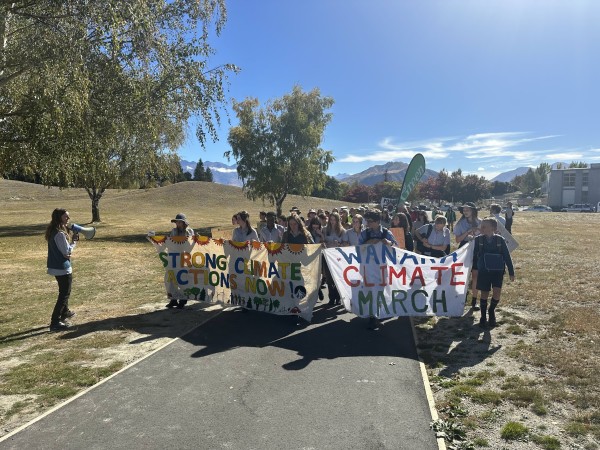
Students made their way through Wānaka's Lismore Park on Friday before heading into town.
"Young people can take the power, if we get organised enough, we rally enough, and if we make enough noise, the difference that we can create is massive, despite what some people think."
I put another comment to Ms Handford, wanting to hear her response from this school of thought brought forth by another Facebook commentator, Jane Price, who seemed to expect perfection from these students.
"How many of them have cellphones and clothes on that are made in China by child labour in a coal-powered factory - makes their protest pointless," Ms Price commented.
It's an "easy out" and it's exactly what the big corporations want us to do, Ms Handford says.
"Fossil fuels are the real enemies in this conversation; they love this because then no one is looking at them. We're looking at each other, putting the blame on other individuals for causing the crisis."
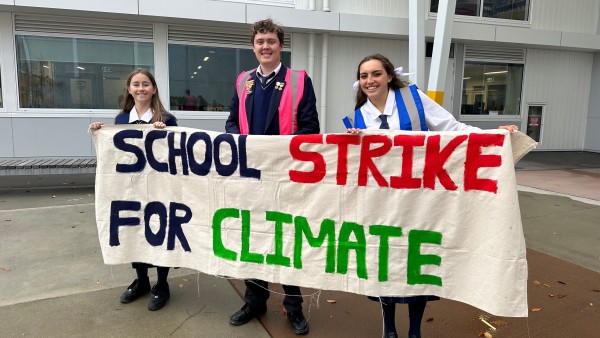
Wakatipu High School students after a successful march last year.
I'd add that the students I have interviewed in Queenstown and Wānaka over the past year are inspiring eco-warriors; they're attending planting days and volunteering their time to local environmental organisations, they're listening to national politics, and one student I remember speaking to last year, was also a living encyclopedia of rock wren facts.
Her passion for these native alpine birds is what inspired her to take climate action locally.
Many ridicule the students for using the protests as an excuse to wag, but, as Wakatipu High School environment prefect Eoin McGlynn put it so well last year, it's "a lot of effort" just for one hour off school.
Back then, he'd spent several weeks liaising with the school, local council, the airport, police, parents and Waka Kotahi to enable the Queenstown march, while this year Wānaka's students told Crux they'd worked with with 30 organisations to pull of their event.
Crux has approached a number of our own Facebook commenters, asking to speak further with them about their disapproval of the climate strikes, but we have received no responses bar one, from someone who said they were travelling and unavailable to talk.
Main image: Students chanting for climate action now in Wānaka's main streets on Friday, April 5, 2024.








